Tuina & Advanced Bodywork Course
Integrating Tuina and Advanced Bodywork into Acupuncture Practice
Tuina Tutor: Nick Lowe Advanced Bodywork Tutor: Jamie Hamilton
In 2025, East West College was delighted to introduce a new training in tuina and advanced bodywork techniques, which can be fluidly integrated into an acupuncture practice.
*********************************************************
We consider that the addition of tuina and acupressure into your acupuncture treatments can provide patients with numerous benefits including a greater sense of nurture and wellbeing. As well as learning specific massage techniques the course also teaches a range of in-depth, hands-on and interactive diagnostic skills including channel palpation, physical assessment, and advanced pulse diagnosis.
With our two expert bodywork tutors Nick and Jamie, we feel lucky to bring you the best of traditional hands-on techniques both of tuina and shiatsu, as well as the latest research information and innovation methods that each of them has expertise in.
Applied Channel Theory and the channel palpation as taught by Dr Wang Ju Yi is at the heart of the treatment approach taught on this course. We will look in-depth at both the anatomy and physiology of the channel system from both a classical and modern scientific perspective.
We start each day with qigong based on the 18-stances Taiji Shibashi.
By taking our course we believe that you will significantly improve your confidence and skillset in assessing and treating musculoskeletal problems as well as treatment strategies for a range of internal conditions. The treatment approach taught on this course is supported by a body of real clinical data and utilises in-clinic testing methods to help determine point selection and treatment principles.
This is a great opportunity to systematically learn a range of new clinical skills with lots of in-person practical learning days with a great group of colleagues. Join us for what we believe will be an enriching and informative training. We will include teaching of advanced pulse diagnosis for the Eight Extraordinary Vessels with the Mai Jing system (a pulse method based on the classics). Course materials are shared on a joint online platform. You will learn:
• To integrate tuina & shiatsu techniques into your existing acupuncture practice
• Improved diagnostic skills through palpation, physical assessment & advanced pulse diagnosis
• A systematic introduction to Applied Channel Theory as taught by Dr Wang Ju Yi
• Increased confidence treating MSK issues, specifically lower back, neck & shoulder issues
• Treatment strategies for internal conditions including migraines, anxiety and insomnia
• In-depth study of channel anatomy informed by the latest research
• Advanced point location
• A variety of validated clinical assessment and evaluation tools
• Provide more individualized and versatile treatments
• Treatment approach supported by a large body of clinical data and cases
Course content includes 12 in-person days as well as several online webinars and recordings which cover theoretical content, up to 100 hours of CPD training.
*******************************************************************
2026 Course
12 days / Four 3-day weekends (Friday to Sunday)
Weekend 1 - 10, 11, 12 April 2026 / Focus: Taiyang - Low Back Pain and Sciatica
Weekend 2 - 29, 30, 31st May 2026 / Focus: Shaoyang - Jueyin - Neck and Shoulder Pain
Weekend 3 - 28, 29, 30 August 2026 / Focus: Yangming and Taiyin - Headaches and Migraine
Weekend 4 - 23, 24, 25 October / Focus: Shaoyin - Anxiety and Insomnia
2026 Pay in full: £1,550
2026 Pay per weekend: £410
To register your interest and ask us any questions on our 2026 course, join our WhatsApp Chat by clicking on this link
PHOTOS of our 2025 course in Exeter follow:
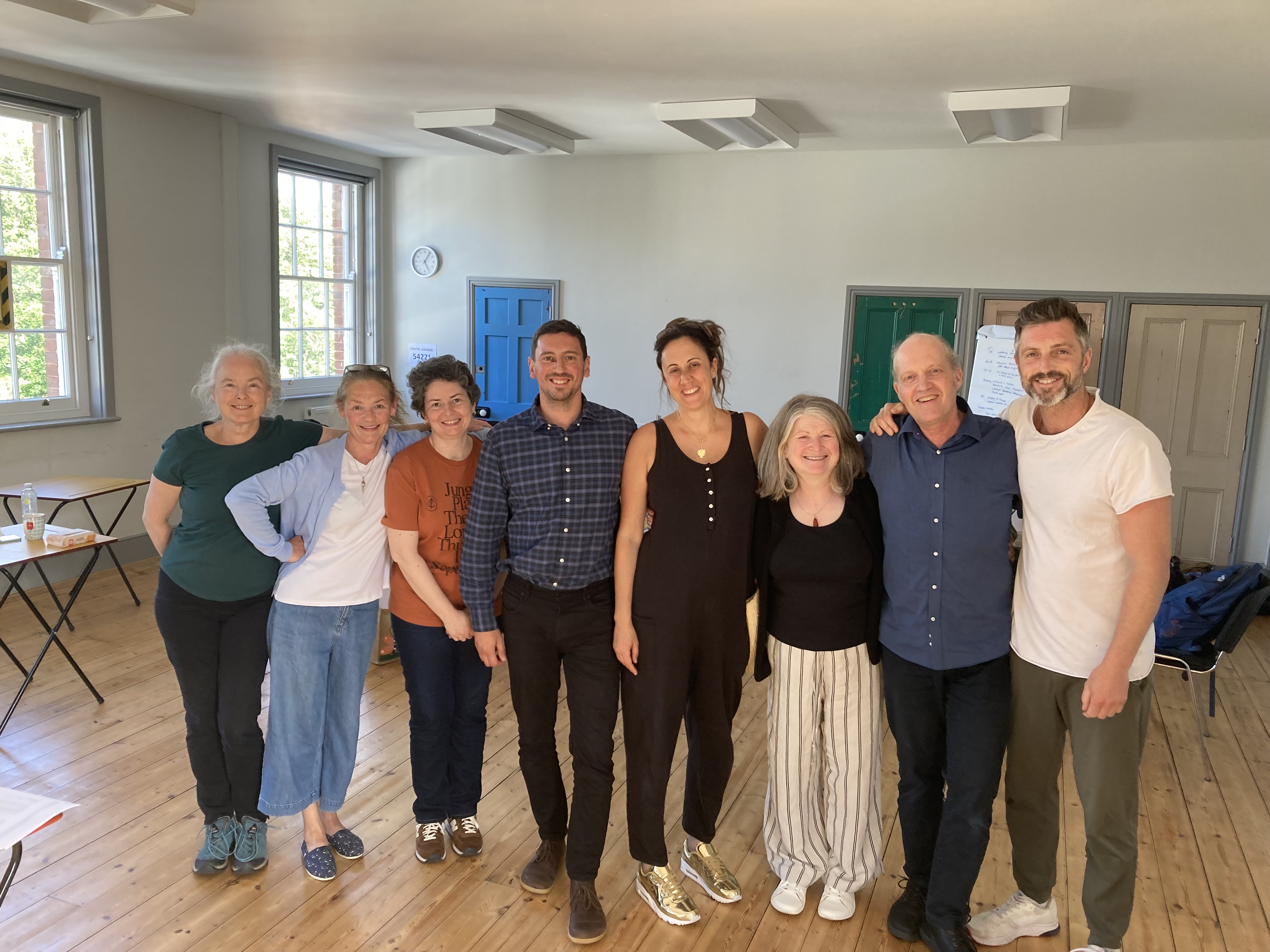

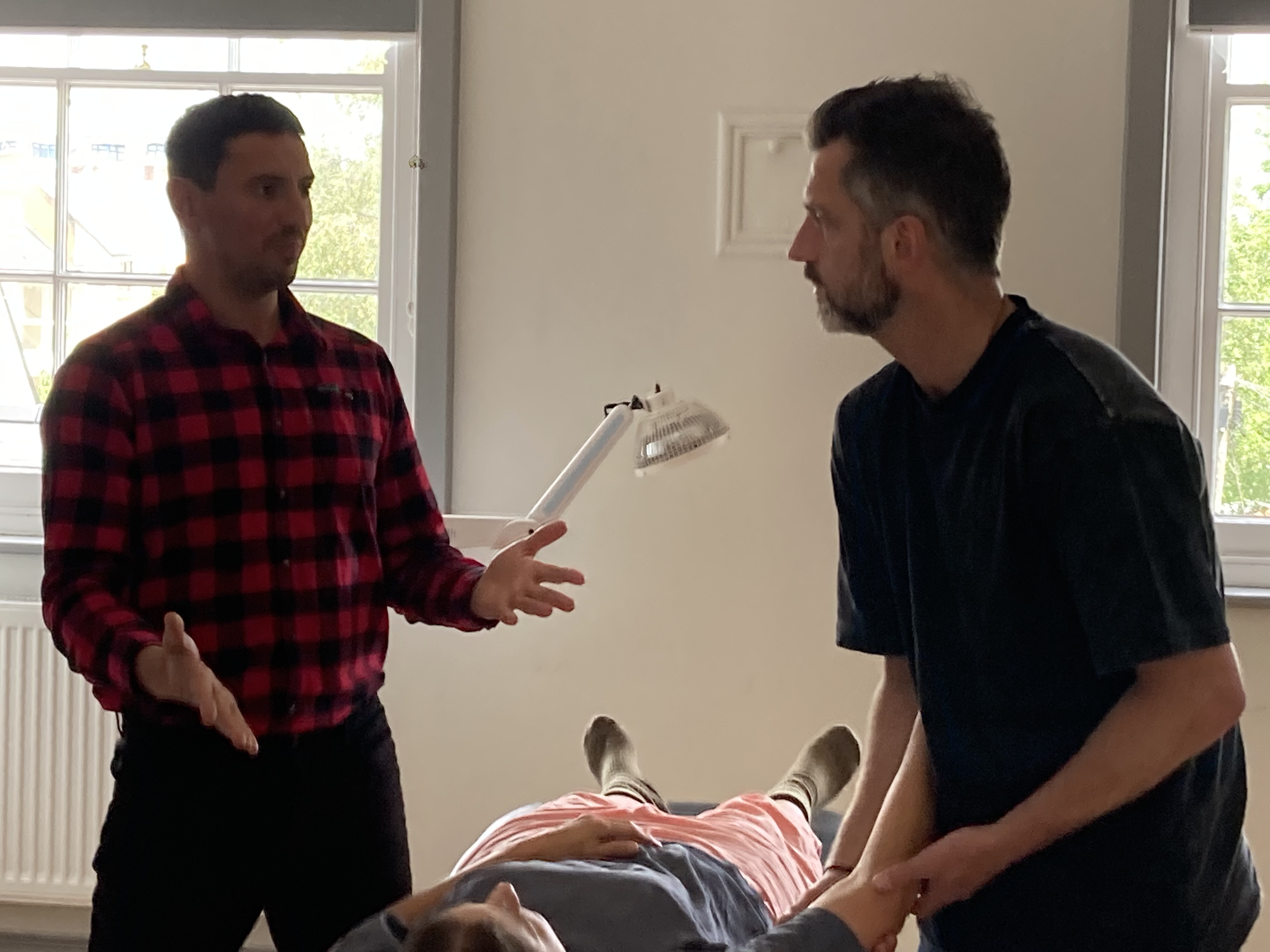
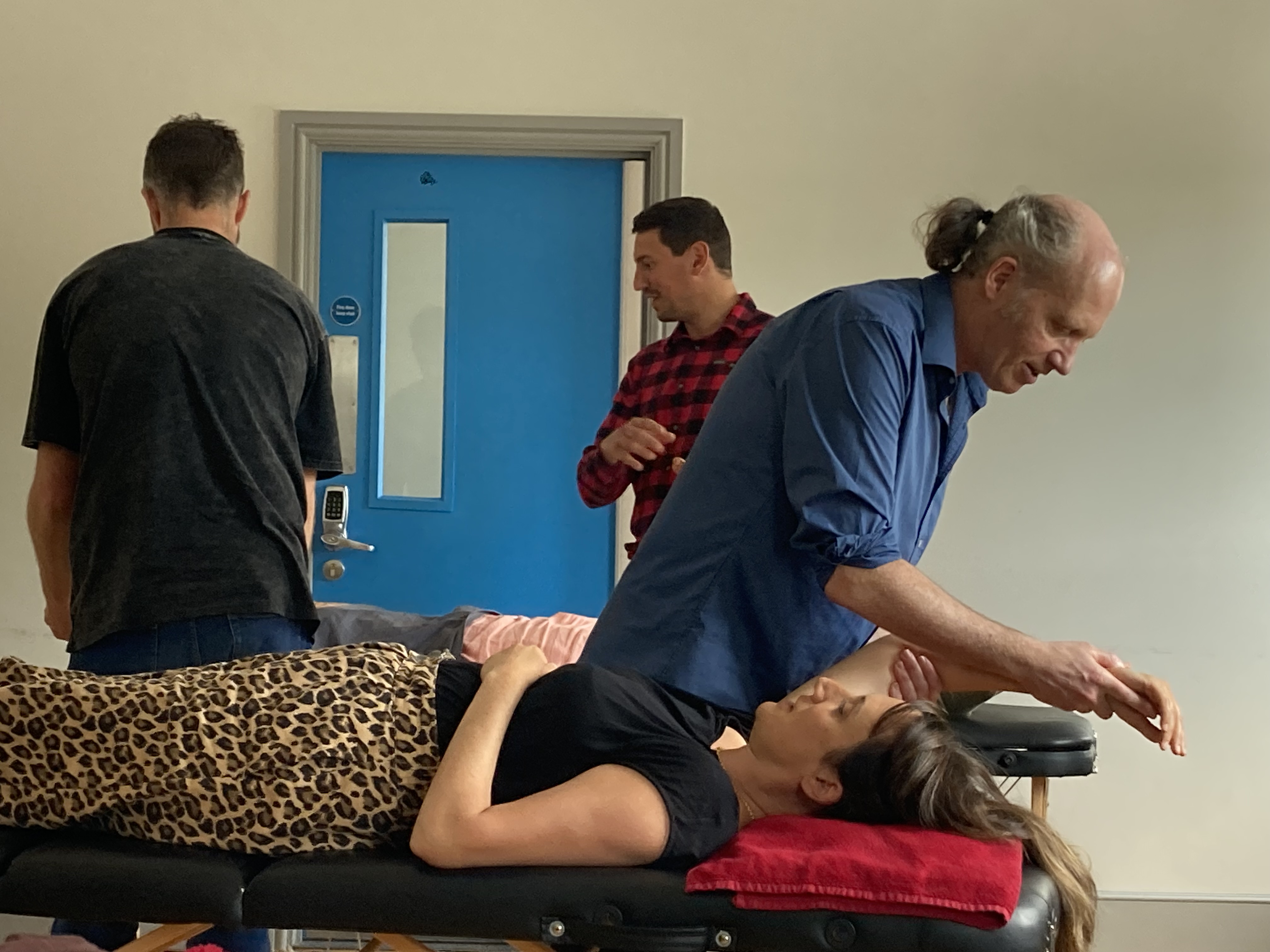
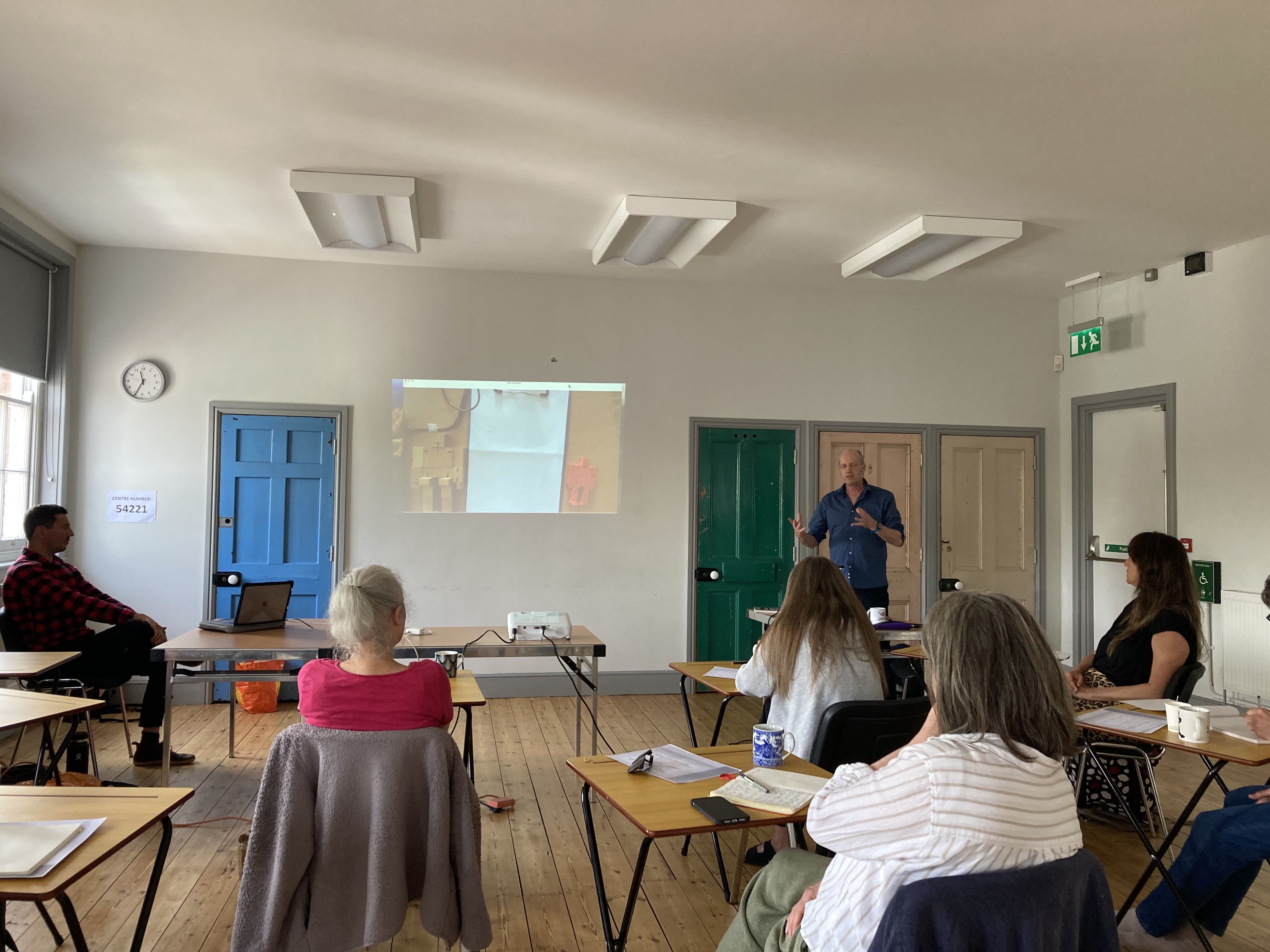


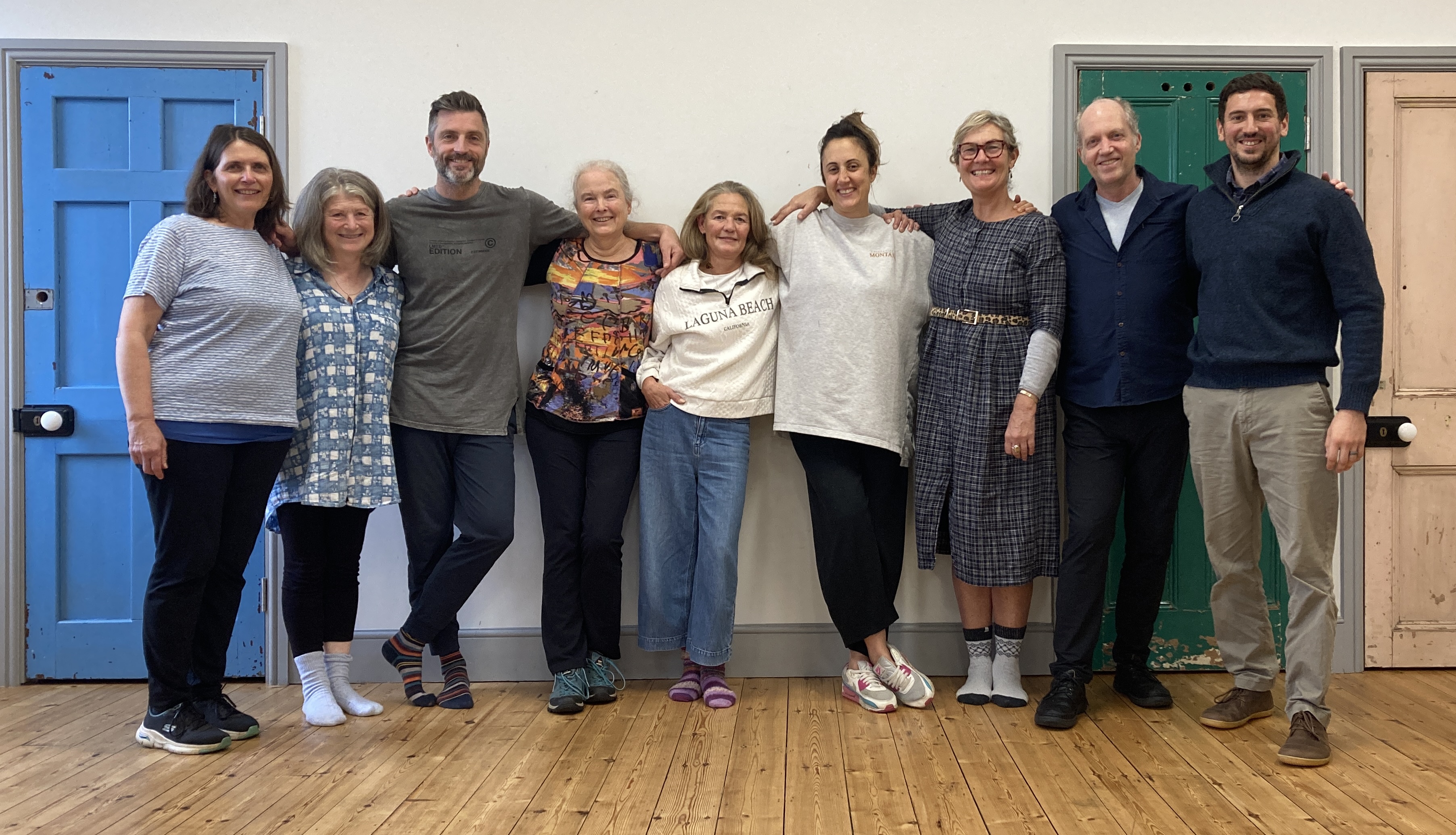
BOOK HERE
Testimonials:
Fantastic course with research and presentations on care information, lots of great learnings presented smoothly and with enthusiasm; great balance of practical and theory. Clark S.
I have really enjoyed the course, it met my expectations; it has been a good mix of hands on practical and very useful theory. Emily H.
Loved it, so interesting and very relaxing when being the patient! Patti O. February 2025
Friendly, hands-on, thought-provoking and flexible. Just what I needed and wanted, I love the balance and combination of theory and practical. Great to have good quality materials, and online files and slides. Ruth B.
The course exceeded my expectations, the teaching was excellent, the content was informative, varied and extensive. It was an amazing weekend learning from Nick and Jamie. I am absolutely blown away by the sheer amount of information shared and their knowledge and expertise! I feel privileged to learn about tuina, acupuncture, pulse diagnosis and channel palpation from both of them. Alina C.
Really informative, good speed...'and by the way, it was amazing!' From the online element: 'So much content and extra information. I found it really good for integrating channel theory, pulse and tuina'. Amanda R.
The Curriculum is broad-ranging and well taught, both theory and practicals, and from the enjoyment point of view, it's the best CPD I've experienced. Patti O'B. May 2025
'A beautifully thought-through course, confident, and completely as described at a perfect level of background, history and modern use; perfect pace and content variability' Sam R. / October 2025
A wealth of experience and knowledge wrapped up in a warm, friendly teaching that has given me a whole new perspective on my practice and new skills! Allie S. / October 2025
See our tutor bios below, and watch videos about the incorporation of bodywork into acupuncture treatments and practice.
Watch Nick's video on reasons why to integrate tuina into your practice:
Watch Jamie's use of shiatsu techniques and yin stretching as part of an acupuncture treatment:
You will also learn:
- How to integrate tuina and advanced bodywork techniques and become confident in depth of pressure work.
- Learn the Applied Channel Theory approach as taught Dr Wang Ju Yi as it relates to musculoskeletal conditions with region by region, condition by condition (mapped to channel system).
- In-depth treatment strategies for commonly seen conditions.
- Learn palpation and physical assessment skills to significantly improve diagnostic confidence.
- Improve your confidence and skillset in assessing and treating musculoskeletal problems.
- Pulse diagnosis focus on Mai Jing system for 8 EV, and have access to Jamie's 4-part video series as part of the course (9 hours of recording of the Mai Jing ABC method).
- 18-stance Qigong
Teaching will be via:
- An intensive and comprehensive in-person training course with quality learning resources.
- Online seminars for course theory content
- Treatment approach supported by real clinical data.
- Case report writing training and patient outcomes with tracking software (optional) or traditional analogue use. Case Work: 10 case reports including 1 in depth case study
Booking may be done here or on our bookings page


Nick Lowe MSc MBAcC
Nick Lowe is passionate about using tuina in clinic. He has undertaken clinical training in the UK, USA and China. Nick has been in clinical practice for over 12 years now and has a strong foundation in tuina massage; studying initially in China in 2009, he completed his Masters Diploma in tuina for sports injuries at the Body Harmonics Centre in 2013. For the last seven years Nick has been practicing the Applied Channel Theory approach as taught by Dr Wang Ju-Yi. He uses a practical ‘hands-on’ approach with an emphasis on palpation, physical assessment and in-clinic testing. Nick most commonly works with musculoskeletal and neuropathic pain, while in his Masters degree he focussed on acupuncture for mental health and anxiety. He is also an active acupuncture researcher and combines his use of traditional techniques and skills with a comprehensive understanding of modern anatomy, pathology and the latest scientific research. He jointly developed the ACU-Track Clinical Registry to help standardise the reporting of real-world patient outcomes in acupuncture practice. He has been awarded a Junior Research Scholarship from the Society for Acupuncture Research (SAR) and has presented regularly at professional conferences.
Academic Principal of East West College: Jamie Hamilton LicAc LicCCH BSc FWSS
Jamie Hamilton became interested in Chinese medicine on travelling from Hong Kong to West China in 1987, when after a cycling accident he received treatment from a blind Chinese Medical practitioner (doctor) who read his pulse and treated him with acupressure and herbal medicine. In 1988 he began a Shiatsu training with Macrobiotics at the East West Centre in London, studying with Rex Lascale, John Sandifer and Bill Tara. After originally qualifing in Sustainable Agriculture in the early 1990's he made a career change to study a Diploma in Therapeutic Massage with the Maitri Foundation in Stroud in the year 2000. In the same year returning to study Shiatsu with Chris Jarmey and George Dellar at the European Shiatsu School in Marlborough. Jamie graduated and became a ‘Big T’ (MRSS (T)) whilst also studying the Six Divisions with Tim Mulvagh of Classically Based Shiatsu.
Jamie went on to train as an Acupuncturist at the College of Integrated Chinese Medicine in Reading, graduating in 2013. Jamie’s other training has been in Shiatsu Facelift, Cosmetic Facial acupuncture and Fertility Acupuncture. He is a Yoga teacher (a graduate from the Mount Madonna Institute in California), as well as a Shodan grade Instructor of Shintaido. He has completed his apprenticeship in Chinese Herbs with the Jing Fang Apprenticeship with Frances Turner.
About East West College: The college was founded in 2009 in Farnham to teach a three-year Diploma of Shiatsu. In 2012, with Fugaku Ito and Nicole Beauvois of Anma France, we organised two Diploma of Anma at East West College, and workshops on Japanese Sotai techniques for releasing muscular tension. Since 2016 Jamie's teaching on pulse diagnosis has been based on the Chinese pulse classic 'The Mai Jing', uncovering new aspects of diagnosis. His new book (published by Singing Dragon on 23 April 2022) entitled 'Essential Pulse Diagnosis in Chinese Medicine' outlines this teaching method. We have taught Applied Channel Theory as CPD since 2017, initially with Michael Phoenix and Jamie Hamilton. Jamie is now our main tutor for the introductory course called 'Fundamentals of Applied Channel Theory' and our recent intermediate course: 'Explore the Yang Channels' where he explains channel differentiation and clincial reasoning. We run advanced courses in Applied Channel Theory with official apprentices of Dr Wang Ju-Yi.

Frequently Asked Questions
Is Dr. Wang's therory related to Tung and Tan styles?
In a word: "no". All three of these teachers did emphasise the need for palpation of channels and used ideas that relate to the six channels (Taiyang, Shaoyin etc.) but Dr. Wang's approach contains a theory base very much in line with classical Chinese Medicine, whereas Dr. Tung (and Dr. Tan whose work was based on Dr. Tung) has a different lineage of thinking.
Can you teach a course where I am based?
Yes we can. With about a 6 person minimum we can come to you with a similar cost stucture to the courses quoted above.
What if I am a shiatsu practitioner?
You may well be able to join our courses. If you have a reasonable TCM knowledge you should be fine with any.
Is East West College on Facebook?
Yes, keep in touch by connecting here
